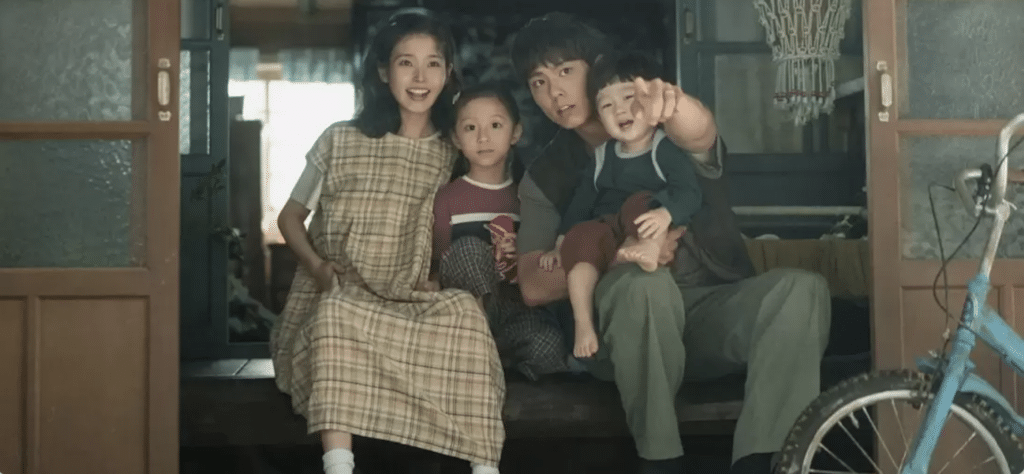

screenshot from Netflix teaser
After I was youthful I at all times had desires of flying by way of magical footwear.
In Greek mythology, footwear, significantly sandals and winged sandals, symbolize numerous themes together with velocity, journey, divine help, and even energy or authority.
Footwear, removed from being mere practical objects, possess deep symbolic resonances.
Footwear symbolize common experiences of safety, transition, and identification as these inform tales of our journey, our aspirations, our standing, and our connection to the earth.
“Perhaps I need to purchase footwear a lot as a result of I grew up poor. I wished issues, however we had no cash. I grew up craving for thus many issues I may by no means have. So now, I don’t maintain again in any respect,” a dialogue between Ae-sun (Moon So-ri) and her daughter Geum-myeong (IU) within the Netflix Kdrama collection “When Life Provides You Tangerines” (WLGYT).
READ: In memoriam: Nora Aunor (Could 21 1953 – April 16. 2025)
WLGYT is a heartrending drama on the lives of three generations of ladies — Ae-sun (Moon So-ri), her mom Jeon Gwang-Rye and her daughter Geum-myeong—spanning from the Sixties to the current day in opposition to the backdrop of Jeju Island.
It revolves across the love story between Ae-sun and Yang Gwan-sik (Park Hae-joon) which began at a tender age and went on to blossom right into a lifelong story of setbacks and triumphs whereas experiencing poverty and hardship.
The scene on footwear highlights the concept of discovering pleasure and satisfaction in unconventional methods, usually associating it with a previous when wishes went unmet or have been usually denied.
With extra sources, there’s now a possibility to make up for these previous experiences and an urge to satisfy these long-held desires and wishes.
It’s not about extreme spending however about reclaiming and having fun with what was as soon as out of attain, making peace with our previous, discovering pleasure within the current, and taking good care of our interior youngster.
As we get older, we purchase what we as soon as needed to let go of. Not simply because we need to, however as a result of part of us remains to be making an attempt to heal.
READ: Whales as symbols of life, dying and hope
Individuals marvel why now we have a number of stuff in our home that my father didn’t need to dispose, particularly the footwear.
Papa justified this by saying that whereas he was rising up, he by no means had the luxurious of proudly owning new ones since each he and my mom got here from a household with very modest means.
Lengthy earlier than ukay-ukay turned well-known, we have been already sporting second-hand footwear and garments, sleeping on beds, sitting on chairs and sofas that Papa purchased from the retailers in Bangkal, Makati.
He tried to instill in us the worth of small blessings.
Seldom did we put on brand-new garments, besides perhaps throughout Christmas when our aunties purchased us clothes on an installment foundation—one Tita would purchase us pants whereas one other took care of the shirts. The footwear have been often sourced from Bangkal.
We turned the real-life fashions for ukay-ukay within the Nineteen Seventies till Nineteen Nineties.
READ: ‘When Life Provides You Tangerines’ leads Baeksang Arts Awards nominees
If WLGYT has Ae-sun promoting cabbages out there, my mom’s model is the “tomato” story.
Once we have been rising up, I keep in mind the strains each time when Mama would scold us, “Buti nga kayo hindi ninyo naranasan ang magtinda ng kamatis sa palengke.” Maybe, this was her means of claiming that no matter the advantages we have been having fun with then have been because of their laborious work.
If mama would say the “kamatis” story, Papa, then again, would inform us tales when he was nonetheless a safety guard in a authorities company earlier than they received married in July 1968.
Papa was a safety guard by day and a pupil by evening taking on library science. When he graduated, he proceeded to be a librarian in the identical workplace till he retired in early Nineteen Nineties.
Papa was like Gwan-sik, a steadfast husband and father who stays dedicated to his spouse and their kids by way of hardship.
Gwan-sik is somebody who quietly protects and cherishes these he loves. He embodies the spirit of a person who not often speaks however expresses love by way of motion.
Gwan-sik is the embodiment of devotion—adoring, loyal and unwavering. He devoted his life to the happiness and the well-being of his household, quietly enduring hardships and heartaches.
Tanghalang Pilipino’s re-run of “Sandosenang Sapatos” by Luis Gatmaitan is a heartwarming musical that follows the journey of a kid who needs to satisfy her shoemaker father’s dream of getting a ballerina for a daughter. Sadly, the kid was born with out toes.
Every year, on her birthday, the kid enters the world of enchanting footwear, the place the Shoe Fairy offers her a pair of toes, permitting her to bop to her coronary heart’s want. Nonetheless, each time she leaves the enchanting world, she loses her toes and faces her father’s disappointment. It takes a tragedy for her to really perceive the depths of her father’s love.
The footwear scene in WLGYT is a testomony of the nice sacrifice mother and father will make in giving their kids a greater life.
Footwear ceaselessly symbolize crossing into new realms, appearing as gatekeepers to transformation as they point out the wearer’s preparedness—or lack thereof—to navigate the terrain forward.
Each step reveals the place we’ve come from and the place we’re heading.
(Peyups is the moniker of the College of the Philippines. Atty. Dennis R. Gorecho is a Junior Companion of the Sapalo Velez Bundang Bulilan Regulation Places of work. For feedback, e-mail [email protected], or name 09088665786.)
Learn Subsequent

